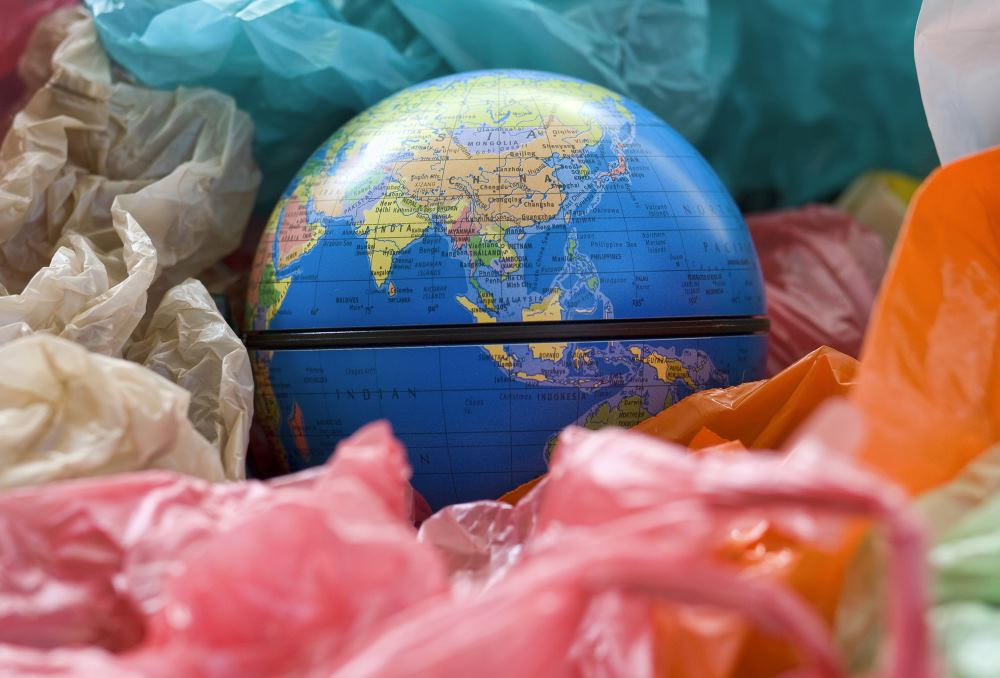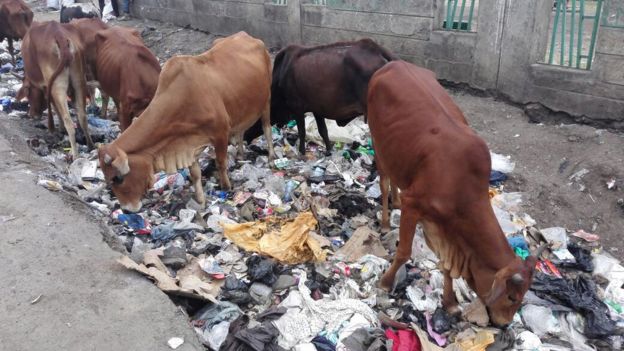Using plastic bags in Kenya equated to felony

Plastic is both good and evil. Probably, modern civilization has not reached the present level of development if plastics of the most different types were not created for a variety of purposes. Science, technology, military affairs, our life - all of this depends heavily on synthetic materials of this kind. But, on the other hand, plastic waste causes great damage to the environment, and therefore to people.
First of all, we are talking about plastic bags and bottles. In any country, both packages and bottles are used by millions, if not billions (take the same China). Respectively, waste turns out weight. Now there is almost no place left on Earth where an attentive person would not be able to detect plastic waste (cups, bottles, the same bags). And this not only spoils the beauty of nature, but also causes irreparable damage to the environment.
Each year, over 8 million tons of plastics are released into the seas and oceans, which has a very negative impact on the state of ecosystems. One of the problems - sea animals confuse plastic with food and fill their stomachs with it. As a result, since this kind of waste is not digested and almost not excreted from the body, animals die. Sea turtles that feed on jellyfish very often confuse their food with packages hovering in the water and swallow inedible objects, and then die of starvation.
')
Last year, scientific results were published , which indicated that plastic was found in the body of more than 31 species of marine mammals and 100 species of seabirds. These animals, like turtles, plasticize their stomachs, feed them chicks (if we are talking about birds) and then die of starvation.
Even plankton passes plastic through itself, which slows down the flow of nutrients into the body of these smallest animals. As a result, plankton is depleted and dies of hunger. The less plankton in the seas and oceans, the worse it is for fish and all those animals that feed on plankton. Worst of all, the various types of plastic used in the manufacture of bottles, cups, bags, toys, decompose for dozens, hundreds, or even thousands of years.
Well, we know that. So what about Kenya?
Everything is simple here. The government of this country has banned the sale and use of plastic bags. Failure to comply with the new law faces a fine of $ 38,000 or imprisonment for four years. Lawmakers say they are trying to protect the environment in this way. The fact is that in Kenya, just a mountain of plastic trash. Not everywhere, of course, but plastic is found in many places. Over the years, the problem has only worsened, and the government decided to remove it from the horizon.
Kenya's legislation on environmental pollution with plastic is one of the most stringent in the world, if not the most stringent.
One of the reasons for the ban on the use of plastic bags in this country is animal husbandry. The fact is that animals, rummaging through garbage, consume a large amount of plastic. And this, in turn, negatively affects the composition of meat - it is polluted by various organic compounds.

“Plastic bags are now considered as one of the most significant threats to Kenya. This problem has become an environmental nightmare that needs to be addressed, ”said representatives of the Kenyan government.
It should be noted that the packages were banned not only for local residents, but also for tourists who flew in from other countries and are not aware of new laws. True, officials claim that the police can only withdraw the package, if that plastic, for the first time the violator will be nothing - with him hold an educational conversation, and nothing more. But here the products or things that were in the package, after meeting with the police will have to carry in their hands.
Also, so far nothing has been heard about the arrested "criminals" who fell for the exploitation or sale of plastic bags. It is possible that in Kenya the severity of this law is compensated for by its non-implementation - this happens. But it is too early to judge. It will be possible to find out whether he took action no earlier than six months later, when official statistics on the use of packages in this country will appear.
Against such a decision are some commercial companies that are not interested in banning packages. But they were told that the preservation of nature in Kenya is more important for the government than the commercial ones are interesting. As a result, the law was still passed and entered into force. Now in Kenya's supermarkets instead of plastic, according to the BBC , fabric bags are used that are both stronger and safer than plastic.
Source: https://habr.com/ru/post/370765/
All Articles